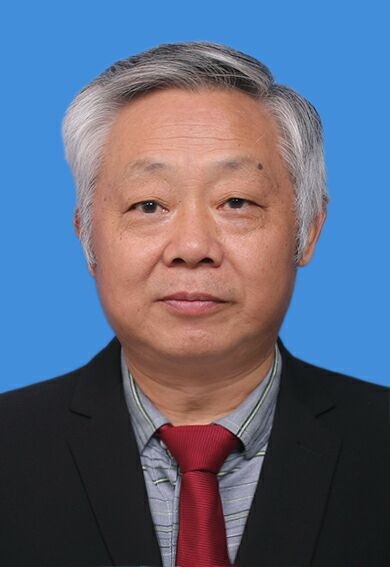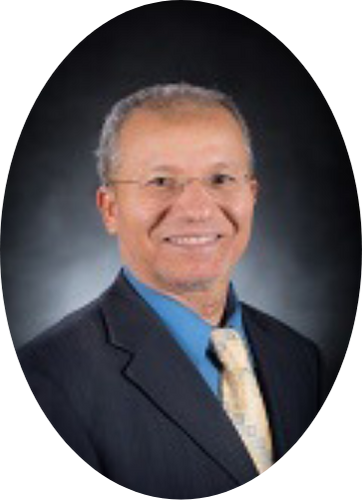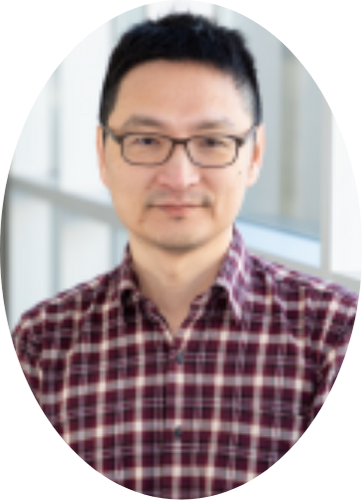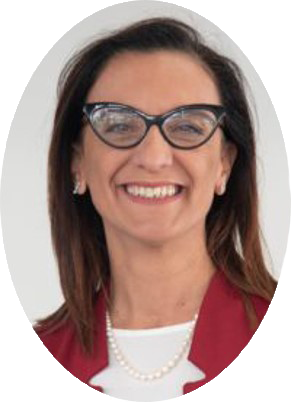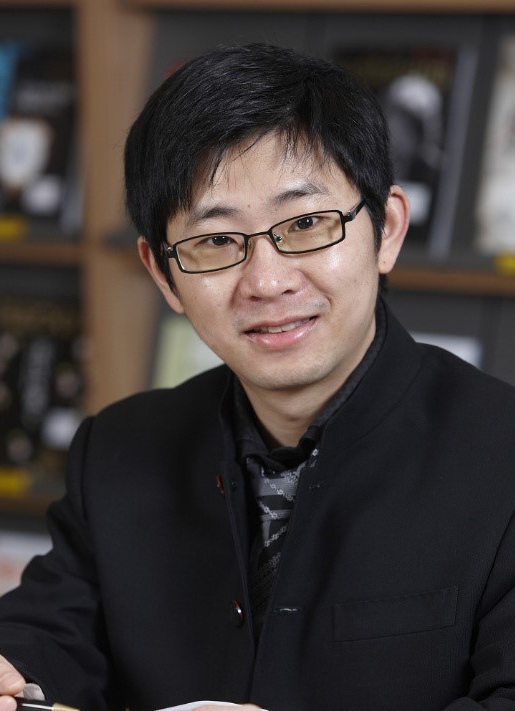
| Prof. Shengli Xie, Guangdong University of Technology, ChinaIEEE Fellow,Foreign member of the Russian Academy of Engineering, Winner of the National Outstanding Youth Science Foundation Shengli Xie (Fellow, IEEE) received the M.S. degree in mathematics from Central China Normal University, Wuhan, China, in 1992, and the Ph.D. degree in control theory and applications from the South China University of Technology, Guangzhou, China, in 1997.,He is currently the Director of the Laboratory for Intelligent Information Processing (LIIP) and a Full Professor with the Guangdong University of Technology, Guangzhou. He has authored or coauthored two monographs and more than 100 scientific articles published in journals and conference proceedings. His current research interests include automatic control and signal processing, especially blind signal processing and image processing. Speech Title: Artificial Intelligence: Development and Reflection Abstract: This report presents a comprehensive reflection on the development of artificial intelligence (AI), covering the basic concepts and exploration paths of AI, the theories and practices of Artificial General Intelligence (AGI) development, the typical algorithms and evolution of AI, as well as emerging new productivity engines that are not yet mature. Finally, it showcases representative cases to demonstrate the application of AI in scientific research. |
Prof. Mohsen Guizani, Mohamed Bin Zayed University of Artificial Intelligence (MBZUAI), UAEIEEE FellowMohsen Guizani (Fellow, IEEE) received the B.S. (Hons.), M.S., and Ph.D. degrees in electrical and computer engineering from Syracuse University, Syracuse, NY, USA, in 1985, 1987, and 1990, respectively. He is currently a Professor in machine learning and an Associate Provost with the Mohamed bin Zayed University of Artificial Intelligence (MBZUAI), Abu Dhabi, United Arab Emirates. Previously, he worked in different institutions in the USA. He is the author of 11 books and more than 1000 publications and several U.S. patents. His research interests include applied machine learning and artificial intelligence, smart cities, the Internet of Things (IoT), intelligent autonomous systems, and cybersecurity. He was listed as a Clarivate Analytics Highly Cited Researcher in Computer Science in 2019, 2020, 2021, and 2022. He has won several research awards, including the “2015 IEEE Communications Society Best Survey Paper Award,” the Best ComSoc Journal Paper Award in 2021, and five best paper awards from ICC and GLOBECOM Conferences. He was a recipient of the 2017 IEEE Communications Society Wireless Technical Committee (WTC) Recognition Award, the 2018 AdHoc Technical Committee Recognition Award, and the 2019 IEEE Communications and Information Security Technical Recognition (CISTC) Award. He served as the Editor-in-Chief for IEEE Network and is currently serving on the editorial boards of many IEEE Transactions and magazines. He was the Chair of the IEEE Communications Society Wireless Technical Committee and the TAOS Technical Committee. He served as the IEEE Computer Society Distinguished Speaker and is currently the IEEE ComSoc Distinguished Lecturer. |
|
| Prof. Pin-Han Ho, University of Waterloo, Canada IEEE Fellow Pin-Han Ho (Fellow, IEEE) is currently a Full Professor with the Department of Electrical and Computer Engineering, University of Waterloo. He is the author/coauthor of over 400 refereed technical articles, several book chapters, and the coauthor of two books on internet and optical network survivability. His current research interests include broadband wired and wireless communication networks, including wireless transmission techniques, mobile system design and optimization, and network dimensioning and resource allocation. He is a Professional Engineer Ontario (PEO). Title: Aerial Non-Terrestrial Networks – Architecture, Technologies, and 5G-NR Integration Abstract: The talk covers emerging topics of non-terrestrial network (NTN) under the context of 3GPP, aiming to discuss the evolved architecture, technologies, and integration with the 5G NR framework. The talk also presents a newly proposed multiple access architecture for the direct-to-cell massive Internet of things (IoT), which incorporates a suite of advanced mechanisms such as contention resolution diversity slotted aloha (CRDSA), k-repetition, grant-free access (GFA), and delayed decoding. |
Prof. Mariagrazia DOTOLI, Politecnico di Bari, Italy IEEE Fellow Mariagrazia Dotoli holds a PhD in Electrical Engineering and is Full Professor in Automation at Politecnico di Bari, Italy (Poliba). She founded the Italian National PhD Program on Autonomous Systems http://dausy.poliba.it/phd/. Prof. Dotoli was Vice Rector for research of Poliba and member elect of the Academic Senate. She chairs the Decision and Control Lab. of Poliba http://dclab.poliba.it/. She is the founder of Poliba spin-off company Innolab https://www.innolabsrl.it/. She is an IEEE Fellow and serves as VP for Membership and Student Activities of IEEE SMC society Homepage - IEEE SMC. She was the General Chair of the 2024 RAS IEEE Conf. on Automation Science and Engineering and of the 2021 Mediterranean Conference on Control and Automation. She was a member of the International Program Committee of 80+ international conferences. She is author of 200+ publications, including 1 textbook (in Italian) and 90+ international journal papers. Title:Control for empowering energy communities Abstract: A powerful solution contributing to the green transformation of modern power systems is represented by the so-called energy community. The term ‘energy community’ denotes a community of users (private, public, or mixed) located in a specific reference area, where all stakeholders – such as end-users (e.g., citizens, companies, etc.), market players (e.g., utilities, service providers), practitioners, planners and policy-makers – actively cooperate to develop a ‘smart’ energy system. Independently from the implemented architecture, the success of energy communities relies on the deployment of suitable decision and control mechanisms that efficiently and widespreadly exploit renewable sources and distributed storage, while enabling the application of measures oriented to cost-effectiveness, sustainability, and reliability. In this context, the talk presents innovative decision and control frameworks, such as game-theoretic methodologies, for energy communities composed of heterogenous actors equipped with trading and sharing service oriented energy systems. The effectiveness of the presented approaches is shown through numerical simulations on realistic scenarios. |
| Prof. Min Chen, South China University of Technology, ChinaIEEE Fellow、IET Fellow、AAIA FellowMin Chen is a professor in School of Computer Science and Engineering at South China University of Technology. He was a full professor in School of Computer Science and Technology at Huazhong University of Science and Technology (HUST) since Feb. 2012. He is the director of Embedded and Pervasive Computing (EPIC) Lab at HUST. He was an assistant professor in School of Computer Science and Engineering at Seoul National University since 2009. He worked as a Post-Doctoral Fellow in Department of Electrical and Computer Engineering at University of British Columbia from 2006 to 2009. He is the founding Chair of IEEE Computer Society Special Technical Communities on Big Data. He was General Co-Chair for IEEE CIT-2012, Tridentcom 2014, Mobimedia 2015, Co-Chair of IEEE ICC 2012-Communications Theory Symposium, and Co-Chair of IEEE ICC 2013-Wireless Networks Symposium and Symposium Chair of IEEE Globecom 2022 eHealth, etc. He has 300+ publications, including IEEE JSAC, IEEE TNNLS, AAAI, Advanced Materials、Science, Nature Communications, etc. He has published 12 books, including Big Data Analytics for Cloud/IoT and Cognitive Computing (2017) with Wiley. His Google Scholar Citations reached 41,000+ with an h-index of 96. His top paper was cited 4,300+ times. He was selected as ESI Highly Cited Researcher from 2018 to 2022. He got IEEE ICC Best Paper Award in 2012, IEEE Communications Society Fred W. Ellersick Prize in 2017, the IEEE Jack Neubauer Memorial Award in 2019, and IEEE ComSoc APB Oustanding Paper Award in 2022. His research focuses on cognitive computing, 5G Networks, wearable computing, big data analytics, robotics, fabric computing, deep learning, emotion detection, and mobile edge computing, etc. He is an IEEE Fellow, IET Fellow and AAIA Fellow. Title: Meta Fiberverse: Embodied Intelligence Evolution over Digital Intelligent Space Built on Meta Fabric Abstract: Recently, advancements in large language models have provided powerful reasoning capabilities for embodied agents to interact dynamically with the environment. This offers hope for achieving robot-centric embodied intelligence and may pave the way for the realization of Artificial General Intelligence (AGI) in the future. This report proposes a fabric computing-based fabric metaverse. Due to the unique advantages of fabric-state perception in facilitating long-term, comfortable, and unobtrusive coexistence with humans, the intelligent digital space constructed from meta-fabrics could autonomously generate supportive tasks based on the understanding of user needs. Additionally, it can correct its value biases by capturing subtle behaviors in the daily lives of users . Finally, this report explores the potential of embodied agents in the fabric metaverse for evolving to open-space intelligence. |
